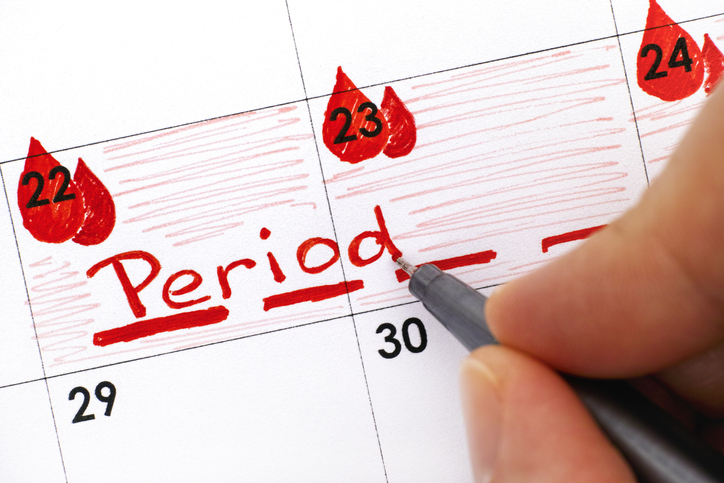What Spotting Between Periods Can Mean
Most women can experience this, and there can be a number of causes, so here’s what you need to know.

Most women have spotting between their periods at some point and usually it’s nothing to worry about.
It is a topic that comes up quite often, so I thought it would be helpful to have a look at what might be causing it, so you can see if you need to take some action.
Hormone-based birth control is certainly one of the most common. If you’re on the pill, or patches, a coil, rings, or implants then you might get spotting during the first 3 months of using it.
This is “breakthrough bleeding” and it is believed the extra hormones may cause changes in the lining of your uterus.
Other frequent causes include:
- Some sexually transmitted infections (STIs), like chlamydia
- An infection of the cervix or lining of your uterus
- Blood clotting disorders, like von Willebrand disease
- Other health conditions, like hypothyroidism, liver disease, or chronic kidney disease
- Fibroids or polyps. These are noncancerous growths in the lining or muscle of the uterus.
Polycystic ovary syndrome (PCOS) can lead to irregular periods, spotting, and sometimes no period at all.
If you have this condition, your ovaries don’t release eggs the way they should and the ovaries become enlarged with fluid-filled sacs that surround your eggs. Your body also makes too many male hormones (called androgens).
Cancers of the reproductive system include ovarian, uterine and endometrial cancers.
There is an increased risk with age but if you have a family risk, or getting frequent spotting between periods, see the doctor to rule out more serious problems.
Perimenopause means as you get closer to menopause, your periods might be harder to predict.
Your hormone levels change, and the lining of your uterus gets thicker. This can sometimes lead to spotting.
When you need to see your Doctor
Make an appointment if spotting concerns you, or if you have spotting along with the following symptoms:
- Pain in your lower abdomen
- Fever
- Symptoms that get worse or happen more often
- Any type of vaginal bleeding — including spotting — after you’ve gone through menopause
Spotting is different from persistent bleeding, and any woman with persistent, heavy, or prolonged bleeding should make an appointment to get it checked out.
Abnormal vaginal bleeding may be minor BUT it could signal something more serious or even life-threatening, such as a benign growth like a polyp or fibroid, a bleeding disorder, an infection, or an injury.
It’s rare, but spotting can sometimes be a sign of cancer so be safe and always have your doctor check it out
Emergency call
Call your doctor or an ambulance if you have unusual vaginal bleeding with:
- Light-headedness
- Fainting
- Skin that appears unusually pale
Helpful information:
If you are at all concerned about any breakthrough bleeding, or abnormal bleeding at any point but particularly post menopause, speak to your doctor.
Take notes about your menstrual cycle and the length and heaviness of the bleeding to help your doctor see what is happening.
Women with PCOS or very heavy periods can often be helped by improving their progesterone levels and this article may be helpful.
https://anna.blog.wellsprings-health.com/pcos-are-you-affected/


















